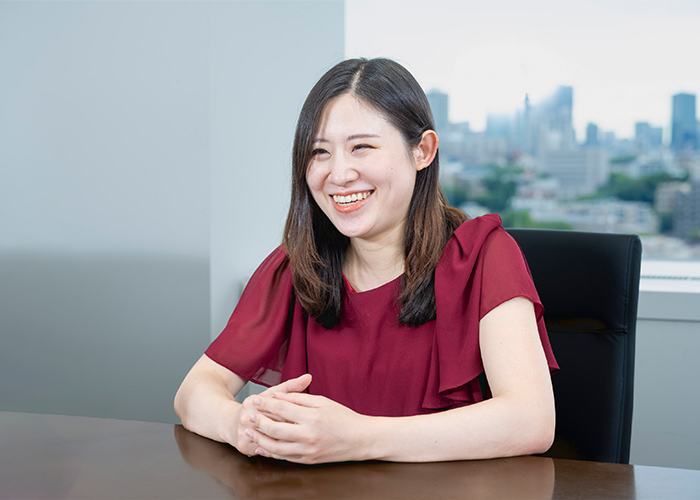The Kumon Method began in my mother’s belly.
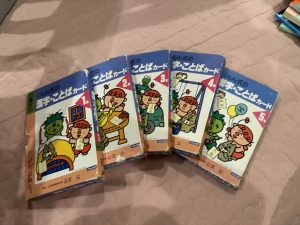
— First of all, please tell us about your first encounter with Kumon.
It was in the third grade of elementary school that I entered the so-called Kumon center.
I had always had good grades in elementary school, so I thought I was smart. However, around the third grade, more and more children started attending cram schools for higher education, and people who knew things I did not know. So, I decided to attend a nearby Kumon center because I wanted to know more than what I was learning at school.
However, my Kumon history began before I was born, when I was in my mother’ womb. My mother attended Kumon center as a form of prenatal education, and she read aloud to me a variety of Kumon materials such as picture books recommended by her Kumon instructor, including English flash cards, math materials, and cards from the Hyakunin Isshu and Haiku poetry.
I vaguely remember my mother reading to me until I was about three years old. Then, after I entered kindergarten, my younger sister was born, so this time I read picture books to her and we played together with Kumon’ Japanese map puzzles.
— How did you get involved with EIC?
I had been taking English conversation lessons since I was about 3 years old, but even though I had learned simple phrases, even as an elementary school student I was not yet able to communicate what I wanted to say in English, and I felt that my current level of English was not at all useful for actual communication. I had friends at school who had returned from abroad and I was envious of them.
Right around that time, I started attending Kumon center, and just as I was about to enter the fourth grade, the instructor at my Kumon center recommended that I join EIC. At the time, it was a two-week camp, so I thought to myself, “If I go to this camp, I will be able to speak English. It would be nice to be able to use the English I had learned all this time,” so I decided to participate.
— What was your experience with EIC?
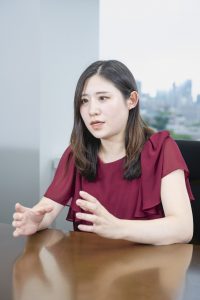
In reality, I did not become fluent in English just because I participated in the two-week EIC, partly because I could hardly speak English to begin with.
However, during the camp, I heard the phrase “Don’ be afraid of making mistakes. Let’ try communicating in English!” over and over again, and wrote my diary in English every day, which was a very meaningful experience for me.
In fact, after two weeks of communicating only in English, mixed with gestures, I gained confidence that I can communicate in English in any situation, as long as I am willing to communicate in English.
EIC inspired me to think that English is only a means of communication and that I should maintain my willingness to communicate even when my English is not perfect.
I also learned a lot from living together with camp leaders from various countries. Through the events such as introducing each country’ culture with dance and music performances, I realized that customs that I had taken for granted before were completely different from one country to another.
I was really nervous at first, but thanks to the camp leaders, I had a really good time, and when I got back from camp, I remember the first thing I said to my parents was, “I just had so much fun!”
Experiences in the EIC that have heightened interest in diversity
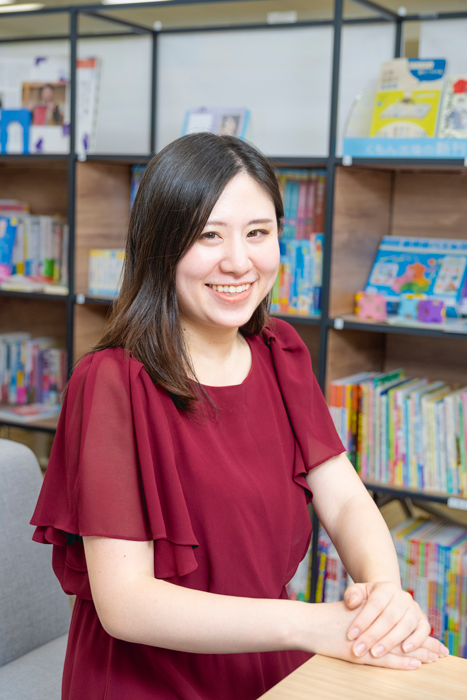
— Has your experience at EIC had any impact on your later life?
While living with camp leaders from various countries, I was able to realize that the region of origin or upbringing does not matter at all in getting along with them. On the other hand, in researching camp leaders’ countries of origin after the camp, I also learned about the realities of various countries.
We realized the problem that individuals can get along with each other, but when it comes to countries, there are historical legacies and conflicts.
My participation in the EIC led me, even as an elementary school student, to think about world peace and how people around the world can get along. I also became more interested in diversity.
This led me to become active in the local chapter of the National Federation of UNESCO Associations in Japan after I became a high school student. As a volunteer, I regularly conducted special classes twice a month at a local elementary school in Ichikawa City, Chiba Prefecture, held an annual fundraising event on the anniversary of the end of the war, and also had experience in planning and organizing events to discuss peace and a camp for 150 people.
— What is your background in college and career building?
Through these activities, I had the opportunity to think about peace and learn about world cultures and relationships among countries, but I also began to feel the “limitations of volunteerism. For example, I began to feel that fundraising to build a temple and childcare center in Cambodia is not sustainable. Volunteering is only possible when there are supporters, and it is only temporary. I decided to study economics at university because I felt that in order to fundamentally solve social issues such as economic disparity and educational disparity, we need to take action through economic activities.
At university, I majored in small- and medium-sized business theory and studied the expansion of Japanese companies into developing countries. When Japanese companies advance into developing countries, the infrastructure of the destination country is improved, jobs are created, and the level of education and other aspects of the country as a whole are raised. I felt that it would be a good idea if more Japanese companies would set up operations in developing countries. In order for this to be sustainable, direct investment from developed countries to developing countries must be made as a business, not only through support such as ODA, but also through the creation of profits.
At the time, India was said to be the most difficult destination for Japanese companies to enter among the emerging countries with remarkable economic growth, so why was that? I decided to actually do research in India through fieldwork, and even stayed in India for a month when I was in second year in university.
Later, in 2014, I stayed in Mumbai, India again for six months as a student of the first term of the “Tobitate! Japan Representative Program,” which Kumon also sponsored, where I conducted research while working as a marketing manager for a local venture company.
When I actually worked for an Indian company, I often experienced culture shock as I learned firsthand the completely different motivations and prioritization of employees between Japan and India, the different ways of communication, the cultural differences between states, and the influence of the caste system. I was very much shocked by the culture.
As for my post-graduation career, I had actually been involved in several entrepreneurial ventures since junior high school, and I thought about launching a full-fledged startup and committing myself to my own business after graduation, but based on my experiences as a student, I decided that in order to actually create significant value for society, I would not stick to starting my own company, but rather expand my possibilities by considering the option of growing by joining an already existing company as CFO or COO, and for this reason I wanted to deepen my knowledge of finance, especially corporate finance.
I also wanted to contribute to the promotion of direct investment in emerging countries through M&A and financing advisory services, as well as to the enhancement of corporate value and further globalization of Japanese companies. In addition, I continued to have a strong interest in social contribution, which led me to join a European firm that was active in such activities among investment banks.
Want to solve social issues through business and finance
— Tell us about how you got to your current job.
Because of the background I have told you about, I joined a foreign investment bank as a new graduate and for a little more than three years, I worked around corporate finance and IR, including advisory work on corporate growth strategies including M&A, IPO coordination, as well as proposals on communication with shareholders. I was also involved in corporate finance and investor relations, including proposals for shareholder communication.
Although the investment banking business was very rewarding, exciting, and fulfilling, as I became involved in volunteer activities within the company, I gradually became more and more interested in “integrating finance and solving social issues. In addition, since I was only in an advisory role at the investment bank, I wanted to be more deeply involved in the company’ decision-making process.
The work involves selecting and investing in companies that create both social and economic value through their business, and discussing them with the investees as shareholders. In addition, I was responsible for a wide range of other tasks, such as conducting seminars for investment targets in collaboration with NPOs engaged in activities related to climate change, and conducting public relations activities related to ESG.
However, through daily conversations with the management of listed companies, I strongly realized that “it is the management team within the company, not shareholders or advisors, that makes decisions for the company,” and I became aware once again that I would like to be involved in management as a member of a startup’ management team in the future.
At the same time, I developed a heart disease called cardiac tamponade, which turned out to be caused by a blood disorder called Castleman’ disease, a government-designated incurable disease that requires intravenous drip treatment every two weeks.
Originally, I had planned to try again in a startup after gaining many years of experience as an investor, but when I suddenly developed an incurable disease, I began to think, “You never know when you are going to die,” and my desire to try a startup at an early stage grew stronger.
So, after experiencing a full range of operations and realizing the results when the stock price of an investment I had selected increased nearly tenfold, I decided to put myself in a startup for the first time since my student days.
Among the startups, we continue to be strongly aware of the keyword “diversity,” which was also triggered by my experience at EIC and also the experience as a patient with an incurable disease.
After my own pregnancy and childbirth, I came to believe that in order to realize a society where diverse values coexist, the way of family should be diversified.
I believe that by making it easier to manage and spend money as a “family” unit through our application, it will lead to more efficient living as a family and closer family relationships.
— Tell us about your dreams and goals for the future.
Diversity management is one word that sums it up. I want to create a society where people with incurable diseases, people with disabilities, and people struggling to raise children and care for the elderly can play active roles and live comfortably, and where people around the world can communicate with each other on an equal footing regardless of race or national origin. We continue to hold at the core of our desire to create a world where all people can do the work they want to do and live the life they want to live.
I am currently raising a one-year-old child, and I feel that time constraints due to child-rearing have become greater recently, so I would like to see more diversity not only in work, but also in family life.
First of all, I would like to introduce systems and services that I think would make it easier for me to work within the company and make it a more comfortable company to work for.
I also believe that we can improve the lives of families through our services, which also motivates me to work. I would like to expand our business greatly, and I would like to establish the economic activities of the “family” as a unit.
— What is your message to children who are studying the Kumon Method?
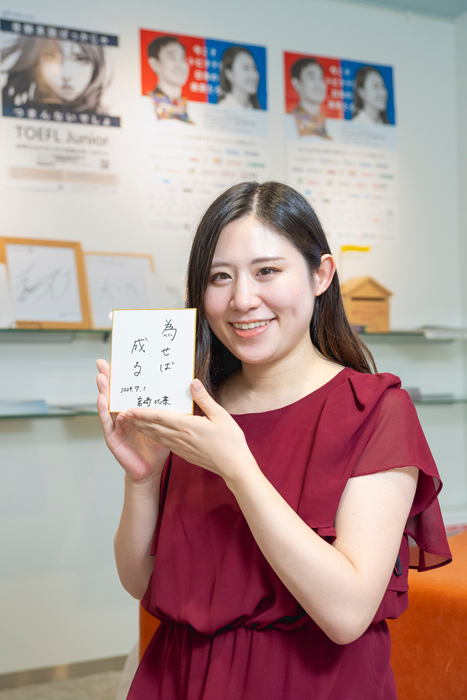
Continuing to do things steadily will always be a powerful thing. Making it a habit is great in itself, so I hope you will continue your learning habit with the Kumon Method.
I myself sometimes create business plans and financial models in Excel for work, and I find that the concentration skills I developed at Kumon have been helpful. It is also important to study even after you enter the workforce as you continue to build your career. For example, in my case, I am continuing to study accounting, finance, labor relations, and law, and I think that my daily Kumon habit may have helped me to continue learning even when I am tired from work.
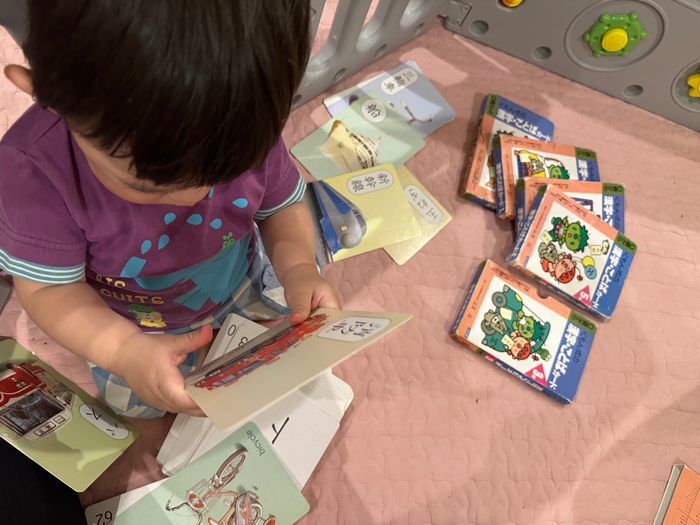
— What kind of child do you want your son to grow up to be?
Now my son is using the same Kumon cards and educational toys that my mother used for me 30 years ago. He also loves Kumon picture books, and I read about 10 books a day to him, but he concentrates on them all the time and enjoys them. He also loves Kumon flag cards.
I want my son to be a person who can strive to achieve what he wants to do and who has his own will. I hope that one day he will be able to participate in the EIC!

